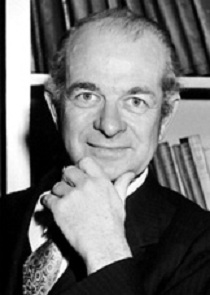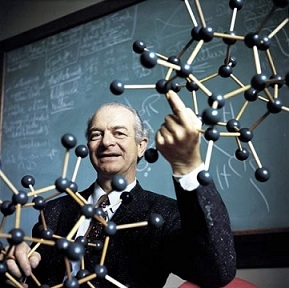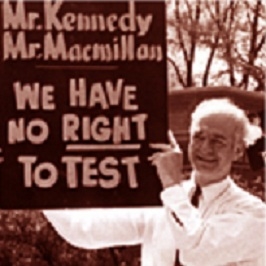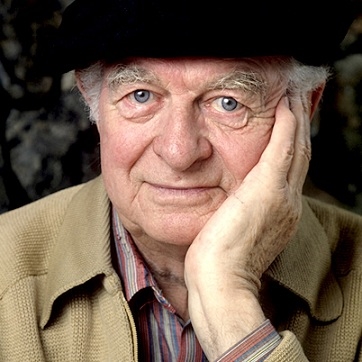 |
| Young Linus Pauling (http://www.nobelprize.org/nobel_prizes/chemistry/laureates/1954/pauling-bio.html ()) |
"Character is higher than intellect. A great soul will be strong as well as think" (Ralph Waldo Emerson). Linus Pauling was a scientist and peace activist who portrays these qualities. Pauling, a graduate of multiple universities, suffered through years of degradation to accomplish his dreams. He knew that determination and perseverance would be the way to accomplish his goals of scientific discoveries and worldwide peace. Pauling challenged himself and other scientists to get involved with the political world around them. He realized that science is intertwined with the need to improve our society. (Barbara Marinacci). During one of the bleakest time periods in history, Linus Pauling inspired others to think logically when a cloud of ignorance trapped human kind in its embrace. Linus Pauling was higher than intellect because of his bravery in the face of ignorance, his determination to find a greater understanding of the scientific world around us, and his will to create a brighter future for humanity.
Pauling's bravery was prevalent during his peace movement, many misconstrued his intentions; when he tried to bring peace by ending atomic bombing, people thought he was supporting the other countries: "During the infamous McCarthy era in the early 1950s, he was treated almost as a traitor. Despite his past patriotism, for several years he was denied a passport to travel abroad to scientific conferences. The State Department's reason: 'Not in the best interests of the United States.' Only in 1954, when Pauling received the Nobel Prize in Chemistry, was an unrestricted passport reinstated" (Marinacci). Although the government classified him as a "traitor" he still fought for what he believed, because it was his responsibility to do the right thing, and end atomic warfare. He put his career and reliability on the line on behalf of others, this courageous act saved millions. Even in the scientific world people mocked him as he made great strides in chemistry and biology: "In the mid-60s Pauling's attention turned to studying how mega doses of vitamins and micronutrients could improve health and in 1970 he wrote the controversial best seller, Vitamin C and the Common Cold. The book - and Pauling - were heavily criticized by the FDA and the medical establishment. Many called Pauling a quack and a kook - a label that followed him the rest of his life" (Oregon Experience). Pauling was positive that his work was correct, and he would not listen to the people who thought otherwise. His book revolutionized the way people cure diseases, due to his work the common cold is no longer a threat. This is an example of how his scientific discoveries improved our society.
 |
| Chemistry (http://ideaelevator.co/tag/linus-pauling/ ()) |
Not only did Pauling create a safer world, but he also created a more intelligent world. Pauling worked on a variety of scientific topics from biology to chemistry: "Over the seven decades of his scientific career, Pauling's research interests were amazingly wide-ranging and eclectic. He made important discoveries in many different fields of chemistry -- physical, structural, analytical, inorganic, and organic chemistry, as well as biochemistry." (Marinacci). His knowledge on atoms gave him a head start on the process of learning and informing the public about using them for bombs. His intelligence was the key to his peace movement. Before he started his scientific career he attended multiple colleges to receive the highest level of education possible: "He was determined to attend college and in 1917, prior to getting his high school diploma, he traveled to Corvallis to attend Oregon State University - then called Oregon Agricultural College. A brilliant student, he majored in Chemical Engineering... Pauling received his doctorate in Chemistry at the California Institute of Technology where he made revolutionary discoveries in chemistry, physics, molecular biology and medicine" (Oregon Experience: Linus Pauling). He knew that education was crucial for his success so he went to a variety of universities. Without this education, his activist and scientific career would not be possible. Pauling would go to any measures to make his dream a reality.
 |
| Protesting (http://pauling.library.oregonstate.edu/ ()) |
In times of nuclear war it was Linus Pauling's obligation as a famous scientist to bring society's attention towards the dangers of atomic bombing. The madness that was taking place during World War II when atomic bombs were first created and used appalled Linus Pauling. He found a way to fight for what he believed in, in a logical peaceful manner: "Pauling put his elevated new position as a Nobel laureate to good effect in his growing social activism. He maintained, using scientific data and statistics to make his points, that radioactive fallout would increase the incidence of cancer and genetic disorders, including birth defects" (Marinacci). Pauling used his gift of scientific knowledge to save the human race from something we were too naive to understand. His wisdom caused others to realize how atomic bombing could destroy the society that we live in. Pauling informed Americans across the nation about the dangers of nuclear bombing that they would have never known otherwise: "In the late 1940s, few Americans had any idea what the long-term effects of nuclear radiation might be, and their government wasn't telling them. Dr. Linus Pauling had already won renown for his application of modern physics to the problems of chemistry when he took on the unpopular task of informing the public about the dangers of nuclear weapons" ( Linus Pauling Profile). Pauling helped Americans nationwide know about the health hazards that are associated with atomic bombs. Pauling used his fame as a Nobel Prize laureate to bring the attention of the public to dangers of nuclear warfare. This portrays Pauling's selflessness, and his consideration of future actions that could transpired if atomic bombing was a threat. The success of his peace movement was due to his vast understanding of science, and his foresight to know that nuclear warfare could wipe out entire nations.
 |
| Linus Pauling (http://www.biography.com/people/linus-pauling-9435195 ()) |
Linus Pauling was higher than intellect because of his bravery in the face of ignorance, his determination to find a greater understanding of the scientific world around us, and his will to create a brighter future for humanity. Pauling accomplished his hopes and dreams of doing something that would improve society. His discoveries changed the way we cure diseases, and the way we understand the chemical world around us. Pauling made astounding scientific studies to spread global peace, this inspires others to solve their problems in a logical and peaceful manner; making himself not only morally and integrally strong, but he also thinks with wisdom (Emerson). He saved millions with his peace movement, and possibly you.
Page created on 9/12/2013 10:57:12 AM
Last edited 1/9/2017 10:36:22 PM
"Linus Pauling - Biography". Nobelprize.org. 21 Mar 2012 http://www.nobelprize.org/nobel_prizes/chemistry/laureates/1954/pauling-bio.html
"Linus Pauling - Biography". Nobelprize.org. 21 Mar 2012 http://www.nobelprize.org/nobel_prizes/peace/laureates/1962/pauling-bio.html
"Linus Pauling Profile." -- Academy of Achievement. The Catherine B. Reynolds Foundation, 2
Feb. 2005. Web. 26 Mar. 2012.
Marinacci, Barbara. "Linus Pauling InstituteMicronutrient Research for Optimum Health." Linus
Pauling Institute at Oregon State University. Oregon State University. Web. 26 Mar.
2012.
"Oregon Experience: Linus Pauling." Linus Pauling. Web. 26 Mar. 2012.
